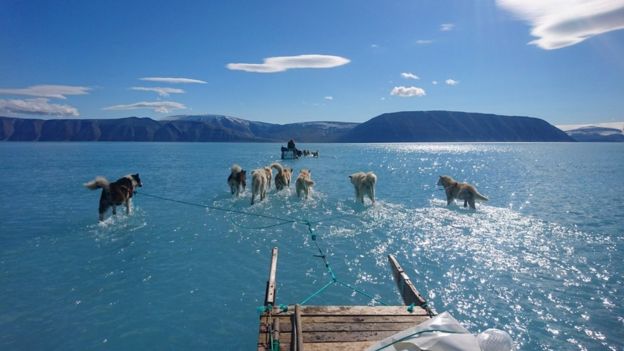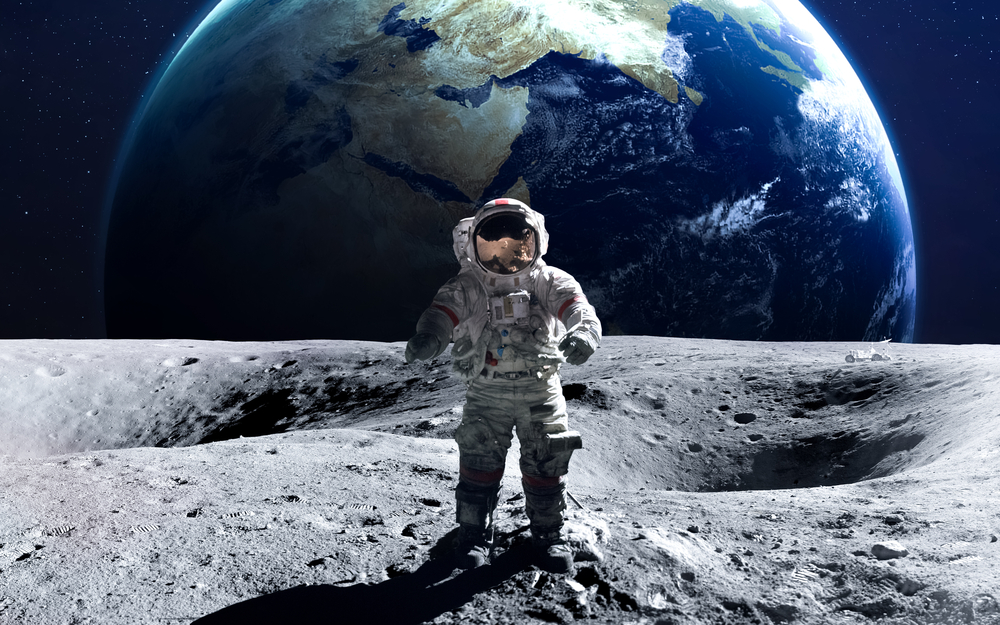We need to talk about Greenland. While 2020 has been a tough year for most and the news has been filled with discussions of Trump, the pandemic and at some point killer bees, there is still an even large danger looming in the background. That danger is, of course, climate change. Climate change hasn’t gone away this year but it hasn’t received the same attention as in previous years. While it would be nice to take a year off climate change and focus on the other perils of the world, we can never stop fighting climate change because the costs are too high. New evidence from Greenland shows that the ice is continuing to melt at very high rates and that this is a trend set to continue.
The analysis of ice loss in 2019 has been completed and it appears it was another record year with the loss of ice 15% higher than the previous record set in 2012. The key factor in this melt in both 2012 and 2019 was high-pressure systems. However, it is the underlying growth of emissions that is continuing to put pressure on the overall trend and that makes high-pressure years like 2019 particularly damaging.
Greenland should be thought of as a huge ice block. 80% of the country is covered in ice, making it the second-largest ice block in the world and largest in the Northern Hemisphere, just behind the Antarctic ice mass. Studies now show that ice is melting in Greenland seven times faster than it was in the 1990s. That is adding 1.5mm of water to the sea levels every year, which contributes about 40% of the overall rise. Clearly, if this goes on unabated disaster will strike. Today we are figuratively lying in a bath with the taps on watching it slowly approach an overflow rate, yet we continue to lie there and do nothing.
People often read these articles and think, that is terrible but how much will it actually impact my life? The answer is; a massive amount. This is no longer a conversation about future generations and your great-grandkids. If these rising sea levels are not put in check an additional 25 million people will experience massive flooding within the next 80 years.
Some argue it is too late. That the carbon emissions we have in place will guarantee the eventual melting of Greenland. While that is true, it is still incredibly important to slow the rate down. It may save countless lives in the short term and allow the long term to find another solution.
Experts argue that all studies are now out of date. The melt rate of Greenland means that it is tracking in line with, or worse than the worst-case scenarios that were previously developed. The worst case of yesterday is the expected outcome of today. Who knows what tomorrow’s worst-case will become?
It is sad to think that the world population will slowly watch the planet die and do little about it. To think if we had started when the first warnings came we could have saved countless lives and even if we started now we could still save the planet. Yet the question is, will we? And how will we? One or two people who cycle to work every day will not save the planet. It is a nice start but it is not enough. Governments must step in and regulate all objects that cause high CO2 emissions. Only then with drastic changes could we have a chance of overcoming this crisis. While the pandemic is still ongoing in many countries, the majority of governments did respond swiftly and with collaboration. It can be done and it needs to be done at a greater scale to save the world.







